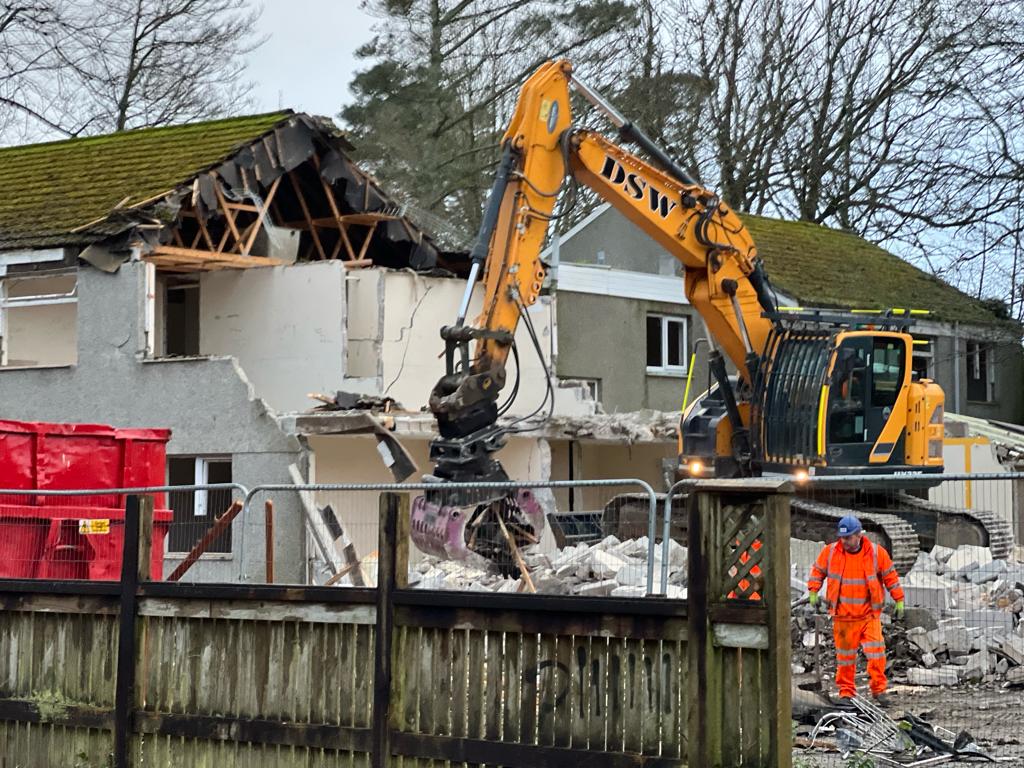When it comes to property development, the decision between renovation and demolition can be pivotal. While renovation is often perceived as the default option, demolition carries its own set of advantages that shouldn’t be overlooked. In this article, we look at the benefits of choosing demolition over renovation and why demolition might be the best choice for certain projects.
1. Freedom of Design and Innovation
Demolition offers a blank canvas for architects and designers to truly answer their customer’s brief without the constraints imposed by existing structures. It allows for innovative designs, modern layouts, and the incorporation of the latest construction techniques and materials. With demolition, there are no boundaries dictated by the original layout or structural limitations, apart from the obvious available space.
2. Cost-Efficiency
While renovation may seem like the more budget-friendly option at first glance, it often entails unforeseen expenses associated with repairing hidden structural issues, outdated systems, and compliance with building codes. In contrast, demolition and rebuild provides clarity in cost estimation, as it involves a fresh start with known parameters. Moreover, demolition eliminates ongoing maintenance costs associated with aging structures, offering long-term savings.
3. Time Savings
Renovation projects can be plagued by delays stemming from unexpected structural problems, material availability issues, or the need to work around existing infrastructure. Demolition, on the other hand, streamlines the construction process by eliminating these uncertainties. With demolition, timelines are more predictable, enabling developers to meet deadlines efficiently and deliver projects on schedule.
4. Enhanced Property Value
Demolishing outdated or dilapidated structures and replacing them with modern, purpose-built developments can significantly enhance property value. New constructions equipped with modern facilities and energy-efficient building techniques and materials appeal to buyers and tenants alike, commanding higher prices and rental income. Demolition allows property developers to capitalise on market demand for updated, high-quality real estate.
5. Mitigation of Risks and Liabilities
Aging buildings are susceptible to a myriad of risks, including structural instability, environmental hazards (such as asbestos), and compliance violations. Renovating such structures entails navigating these risks, potentially exposing developers to legal liabilities and safety concerns. Demolition mitigates these risks by eliminating outdated infrastructure and ensuring compliance with current building regulations and safety standards from the outset.
6. Environmental Sustainability
While demolition may appear counterintuitive in terms of sustainability, it can be a more eco-friendly option compared to extensive renovation efforts. Demolition enables the removal of inefficient, energy-consuming structures and paves the way for the construction of environmentally conscious buildings equipped with green technologies and sustainable materials. Additionally, demolition allows for the proper recycling and repurposing of salvaged materials, reducing waste and minimising environmental impact.
Conclusion
In conclusion, while renovation undoubtedly has its merits, the advantages offered by demolition should not be overlooked. From enabling creative freedom and cost-efficiency to streamlining construction timelines and enhancing property value, demolition presents a compelling case for certain development projects. By embracing demolition as a strategic approach to revitalising properties and available land, developers can unlock opportunities for innovation, profitability, and sustainability.


